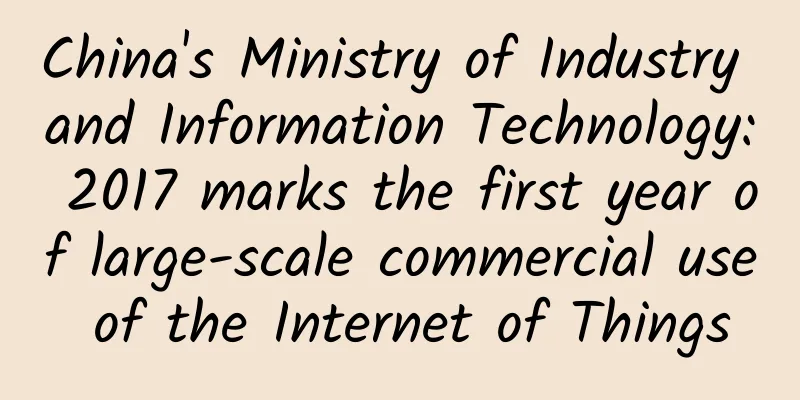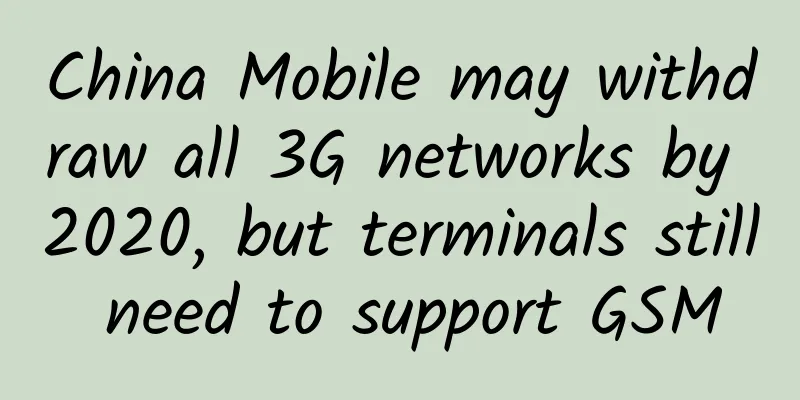China's Ministry of Industry and Information Technology: 2017 marks the first year of large-scale commercial use of the Internet of Things

|
Since the international standards were finalized in 2016, the global Internet of Things industry has matured rapidly and entered the “first year of large-scale commercial use” in 2017. Wen Ku, director of the Information and Communications Development Department of the Ministry of Industry and Information Technology of China, made the above statement on the 27th when attending a press conference held by the State Council Information Office. On October 27, the State Council Information Office held a press conference. Wen Ku, Director of the Information and Communications Development Department of the Ministry of Industry and Information Technology, introduced the development of the industrial communications industry in the first three quarters of 2017 and answered questions from reporters. Wen Ku said, "In terms of network scale, chips and some applications, China is in a leading position in the world."
At present, China's three basic telecommunications companies have started the construction of NB-IoT (narrowband Internet of Things) networks, which will gradually achieve wide coverage across the country. In 2017, the scale of base stations in the entire network will exceed 400,000, and a number of provinces and cities have started commercial networks. In terms of commercial chips, companies such as Huawei HiSilicon have begun to have the ability to supply in batches, and companies such as RDA Microelectronics and ZTE Microelectronics are also accelerating their progress. It is expected that a mass production situation will be formed with multiple manufacturers supplying. As the industry scale expands, the price of terminal modules, which previously restricted the commercialization of the Internet of Things, has dropped to a reasonable level. Previously, China Telecom purchased 500,000 NB-IoT modules at a unit price of US$5. Wen Ku introduced that many local governments, such as Yingtan, Jiangxi and Fuzhou, Fujian, support the development of NB-IoT and are promoting the deployment of hundreds of thousands of NB-IoT-based smart water meters; Tibet is trying to introduce NB-IoT networks into the yak market. "But overall, the types of NB-IoT applications are still a bit monotonous." Wen Ku said that in the future, efforts should be made to increase the application, development and promotion of the Internet of Things. In addition to water meters and gas meters, more personalized applications for ordinary public users should be launched. In addition, efforts should be made to increase research and development on chips, and the scale supply capacity of multiple manufacturers and enterprises should be formed as soon as possible to meet market demand. |
Recommend
Thousands of face photos can be bought for 2 yuan! CCTV reveals the black market of AI! The truth is far more than this
On October 27, CCTV News reported last night that...
Taiwan's 5G penetration rate is expected to reach 30% by the end of this year
According to Taiwan's Electronic Times, indus...
The TCP three-way handshake is well-known, but what about unexpected situations? What about packet loss? What about intentional non-reply of ACK?
[[312203]] 1. Preface When we talk about the TCP ...
Lisahost: Los Angeles 9929 line VPS annual payment starts at 179 yuan, three-network AS4837 annual payment starts at 269 yuan, native IP, optional high defense
Lisahost is a foreign hosting service provider re...
Combining AI and big data, the intelligent operation and maintenance platform helps Liulishuo improve its core competitiveness
High-quality content and customized services enha...
Weibu Online was shortlisted for CDM 2021 Black Unicorn Awards
On August 3, 2021, CyberDefense Magazine, a world...
China's 5G users account for more than 70% of the world's total
The latest data from the Ministry of Industry and...
[6.18] edgeNAT 40% off on all VPS annual payments, starting at 360 yuan for annual payments in Hong Kong/Korea/US data centers
edgeNAT is a Chinese hosting company established ...
2021 is the year of the explosion of the cellular IoT module industry
According to a new research report from IoT analy...
Virtono: €29.95/year KVM-1GB/30GB/2TB/10 data centers available
Virtono recently launched the SPRING SALE 2022 ev...
Veteran Network Engineer: A brief discussion on the thinking and practice of SDN design under cloud-network collaboration
The Internet has been quietly changing over the y...
Simple analysis of the three important requirements for remote network connections
The continuous emergence and upgrading of online ...
How do packets and routing tables forward data in the network? Learn in one minute
1. Routing Table When the frame reaches the route...
Operators' internal meeting again discussed how to compete, saying no price wars and no market disruption
Recently, at an internal leadership meeting of op...
The pain of transformation in the gaming industry is evident as Digital Sky successfully breaks through with the help of Huawei Cloud
[51CTO.com original article] In 2017, the total r...









